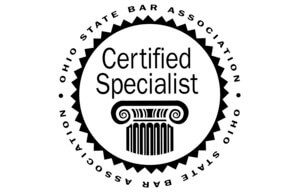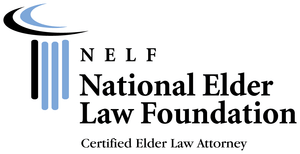Living Trusts
/I have a will. Why would I want a living trust?
Contrary to what you've probably heard, a will may not be the best plan for you and your family--primarily because a will does not avoid probate when you die. A will must be filed with the probate court before it can be enforced.
Also, because a will can only go into effect after you die, it provides no protection if you become physically or mentally incapacitated. Therefore, a guardianship proceeding with the probate court would be necessary to manage your assets.
Fortunately, there is a simple and proven alternative to a will--the revocable living trust. It avoids probate, and lets you keep control of your assets while you are living--even if you become incapacitated--and after you die.
What is probate?
Probate is the legal process through which the court sees that, when you die, your debts are paid and your assets are distributed according to your Will. If you don't have a valid Will, your assets are distributed according to Ohio law.
What's so bad about probate?
It can be expensive. Legal/executor fees and other costs must be paid before your assets can be fully distributed to your heirs. If you own property in other states, your family could face multiple probates, each one according to the laws in that state. These attorney’s fees and costs can vary widely, but in many counties the Probate Court sets acceptable fee levels as a percentage of the estate for attorney fees (without having to account for actual billable time), usually between 4%-5%.
It takes time, usually six months to two years, but often longer. Nothing can be distributed or sold without court and/or executor approval.
Your family has no privacy. Probate is a public process, so any "interested party" can see what you owned and who you owed. The process "invites" disgruntled heirs to contest your will and can expose your family to unscrupulous solicitors.
Your family has no control. The probate process determines how much it will cost, how long it will take, and what information is made public.
Doesn't joint ownership avoid probate?
Not necessarily. On a joint account one half of the value will be probated at the first death. On joint accounts with rights of survivorship (JTWOS), it usually just postpones the need for probate. With JTWOS assets, when one owner dies, full ownership does transfer to the surviving owner without probate. But if that owner dies without adding a new joint owner, or if both owners die at the same time, the asset must be probated before it can go to the heirs.
Watch out for other problems with joint accounts. When you add a co-owner, you lose control. Your chances of being named in a lawsuit and of losing the asset to a creditor are increased. There could be gift and/or income tax problems. With some assets, especially real estate, all owners must sign to sell or refinance.
Why would the court get involved at incapacity?
If you can't conduct business due to mental or physical incapacity (Alzheimer's, stroke, heart attack, etc.), only a court appointed guardian can sign for you - even if you have a Will. (Remember, a Will only goes into effect after you die.)
Once the court gets involved, it usually stays involved until you recover or die. This public process can be expensive, embarrassing, time consuming and difficult to end if you recover. And it does not replace probate at death - your family could have to go through the court system twice!
What is a living trust?
A living trust is a legal document that, just like a Will, contains your instructions for what you want to happen to your assets when you die. But, unlike a Will, a living trust avoids probate at death, can control all of your assets, and may prevent a guardianship proceeding at incapacity.
Do I need a living trust and a durable power of attorney?
A durable power of attorney lets you name someone to manage your financial affairs if you are unable to do so. Because a durable power of attorney gives someone total control of your assets, there is the potential for abuse. That risk is limited by moving most of your assets to a living trust to be controlled by the trustee. However, there are some assets, such as IRAs, which will remain in your name, likely with the trust as a beneficiary. For those assets you will need a durable power of attorney.
How does a living trust avoid probate and prevent court control of assets at incapacity?
When you set up a living trust, you transfer assets from your name to the name of your trust, which you control -- such as from "Bob and Sue Smith, husband and wife" to "Bob and Sue Smith, trustees under trust dated (date of trust)."
Legally you no longer own anything (don't panic: everything now belongs to your trust of which you have total control), so there is nothing for the courts to manage when you die or become incapacitated. The concept is very simple, but this is what keeps you and your family out of the courts.
Do I lose control of the assets in my trust?
Absolutely not. You keep full control. As trustee of your trust, you can do anything you could do before -- buy/sell assets, change or even revoke your trust (that's why it's called a revocable living trust), all without anyone else’s consent. You even file the same tax returns. Nothing changes but the names on the titles.
Is it hard to transfer assets into my trust?
No, and we can help. You need to change titles on real estate (in- and out-of-state) and other titled assets (vehicles, stocks, CDs, bank accounts, other investments, insurance, etc.). Most living trusts also include jewelry, clothes, art, furniture, and other assets that do not have titles. Also, beneficiary designations on some assets (like insurance) may be changed to your trust.
Doesn't this take a lot of time?
It will take some time -- but you can do it now, or your family can collect, manage and distribute your estate through the probate system after you die. One of the benefits of a living trust is that all your assets are brought together under one plan, and are identified as part of the plan so that your heirs do not spend undue time and expense just to find out what you own! Don't delay "funding" your trust. It can only protect assets that have been transferred into it.
If something happens to me, who has control?
If you and your spouse are co-trustees, either can act and have instant control if one becomes incapacitated or dies. If something happens to both of you, or if you are the only trustee, your handpicked successor trustee will step in. If a corporate trustee or another individual is already your trustee or co-trustee, they will continue to manage your trust for you.
What does a successor trustee do?
If you become incapacitated, your successor trustee looks after your care and manages your financial affairs for as long as needed, using your assets to pay your expenses. If you recover, you automatically resume control. When you die, your successor trustee pays your debts and distributes your assets. All this is done quickly and privately, according to instructions in your trust, without court interference.
Who can be successor trustees?
Successor trustees can be individuals (adult children, other relatives, or trusted friends) and/or a corporate trustee. If you choose an individual, you should name more than one, in sequence, in case your first choice is unable to act.
Does my trust end when I die?
A trust doesn't die with you. Assets can stay in your trust, managed by the trustee you have chosen - until your beneficiaries (including minor children) reach the age(s) at which you want them to receive the funds, or to provide for a loved one with special needs.
How can a living trust save on estate taxes?
If you die in 2014 and the net value of your estate (assets less debts) is more than $5.34 million, federal estate taxes must be paid. If you are married, your living trust can include a provision that will let you and your spouse leave up to $10.68 million estate tax-free to your loved ones.
Doesn't a trust in a Will do the same thing?
Not quite. A Will can contain wording to create a testamentary trust to save estate taxes, care for minors, etc. But, because it's part of your Will, this trust cannot go into effect until after you die and the Will is probated. So, it does not avoid probate and provides no protection if you are incapacitated.
How long does it take to get a living trust?
It should only take a few weeks to prepare the legal documents after you make the basic decisions.
Should I have an attorney do my trust?
Yes, but you need the right attorney. The attorneys at Daniel P. Seink Co. Ltd. are committed to providing comprehensive, yet affordable elder law and estate planning services and have drafted thousands of trusts for individuals and families throughout Ohio.
If I have a living trust, do I still need a Will?
Yes, you need a "pour-over" Will that acts as a safety net if you forget to transfer an asset to your trust, or something comes into your estate after you die. When you die, the Will "catches" the asset and sends it into your trust. The “caught” asset will have to go through probate first, but only that asset (not the trust assets), but it can then be distributed as part of your living trust plan. Many times, a single missed asset will qualify to be “released” from probate to the trust.
Is a "living will" the same as a living trust?
No. A living trust is for financial affairs. A living will is for medical affairs - it lets others know how you feel about life support in terminal situations.
Are living trusts new?
No, they've been used successfully for hundreds of years.
Who should have a living trust?
You should consider a living trust if you are married and concerned about estate taxes, you have minor or disabled children, you are in a second marriage with children from a prior relationship, you are concerned about how well your heirs will manage the money, want to protect the assets from creditors that your heirs have/might have in the future, or you have a unique or complicated plan of distribution. There are many other situations where a living trust is a useful estate planning tool. Because each individual's needs are unique it is advisable to consult with one of our attorneys about your specific situation.
Summary of Living Trust Benefits
- Avoids probate at death, including multiple probates if you own property in other states.
- Prevents court control of assets at incapacity.
- Brings all your assets together under one plan.
- Provides maximum privacy.
- Quicker distribution of assets to beneficiaries.
- Assets can remain in trust until you want beneficiaries to inherit.
- Can reduce or eliminate estate taxes for married individuals.
- Easy to set up and maintain.
- Can be changed or revoked at any time.
- Difficult to contest.
- Prevents court control of minors' inheritances.
- Prevents control of minors' inheritances by ex-spouses and in-laws.
- Can protect dependents with special needs.
- Prevents unintentional disinheriting and other problems of joint ownership.
- Protects assets from the creditors of your heirs.





